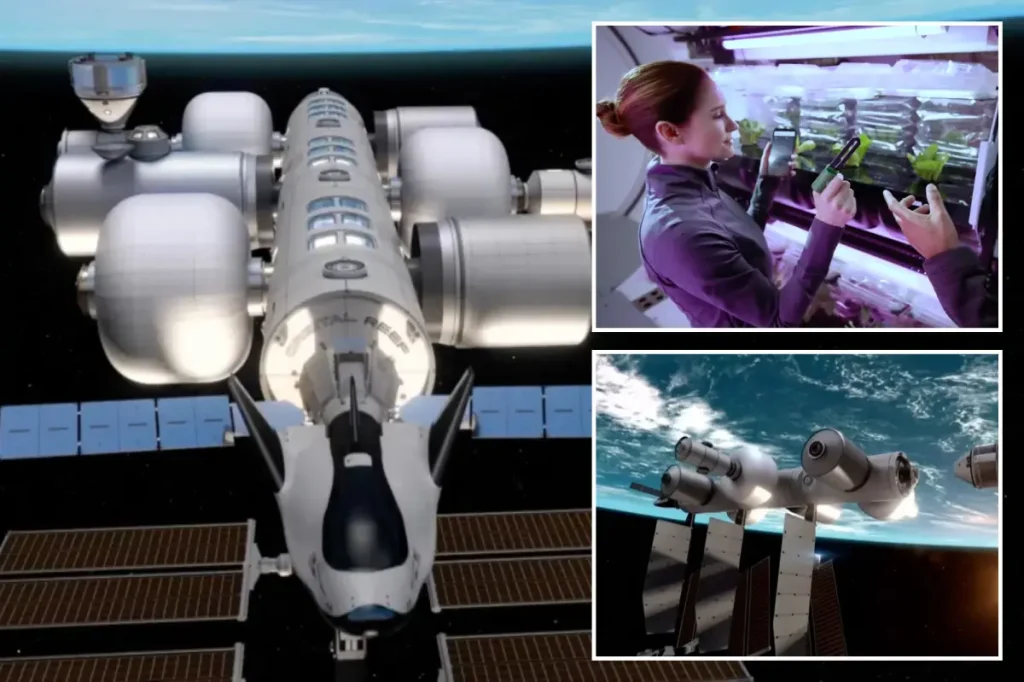Jeff Bezos’s Grand Vision: Bringing Human Life to Space
In an era where space exploration is no longer confined to the pages of science fiction, Jeff Bezos is taking bold steps to transform humanity into a spacefaring civilization. The Amazon founder, who has already sent humans to space with his Blue Origin rockets, is now focused on creating sustainable living environments beyond Earth’s atmosphere. “In the next couple of decades, I believe there will be millions of people living in space. That’s how fast this is going to accelerate,” Bezos declared at the recent Italian Tech Week 2025. This isn’t merely a billionaire’s flight of fancy—it represents a profound vision for humanity’s future, one where we expand beyond our home planet while simultaneously working to preserve it.
At the heart of Bezos’s space ambition lies a paradoxical mission: to save Earth by leaving it. As Blue Origin’s mission statement explains, “We believe that, in order to preserve Earth, our home, for our grandchildren’s grandchildren, we must go to space to tap its unlimited resources and energy.” Christian Davenport, author of “Rocket Dreams,” elaborates on this vision: “He’s got this vision where the space stations are so big, humanity can spread out into the solar system to live there and have all the heavy industry happen in space. Then Earth is preserved as a huge park.” While the complete realization of this vision might be centuries away, Bezos is already working on the first steps—a project called Orbital Reef, which could potentially replace the aging International Space Station and become the first privately owned habitat in space by 2030.
Orbital Reef represents a collaborative effort between Blue Origin, Sierra Space, Boeing, and other partners. Designed as a “mixed-use business park” in low Earth orbit approximately 250 miles above Earth’s surface, this space station will initially accommodate up to ten people. James Pethokoukis, an analyst at the American Institute, sees this as “the beginning of what he is talking about. It will be a first major step [in terms of space living] for Blue Origin.” Like the International Space Station, Orbital Reef will orbit Earth at 17,400 miles per hour, completing one revolution every 90 minutes. The station isn’t just a scientific outpost—Blue Origin envisions it as “the premier mixed-use space station in low-earth orbit for commerce, research and tourism,” fostering a “vibrant ecosystem” funded by space tourists, nations renting space, and companies conducting microgravity experiments impossible to perform on Earth.
What makes Orbital Reef particularly innovative is its modular design, allowing for expansion as demand increases. Additional sections can be launched from Earth and attached to the original structure, gradually growing the station’s capacity. For the ultra-wealthy looking for the ultimate adventure, Blue Origin plans to offer “exotic hospitality”—a futuristic experience comparable to climbing Mount Everest today. However, Orbital Reef is just the beginning of Bezos’s cosmic ambitions. His grand plan involves creating massive space habitats called O’Neill colonies, named after Princeton physicist Gerard O’Neill, whose theories inspired Bezos during his university days. These enormous space cylinders would spin while orbiting Earth to create artificial gravity, housing potentially thousands of people in structures more than a mile wide.
Bezos isn’t alone in his extraterrestrial aspirations. Elon Musk has long advocated for colonizing Mars, frequently sporting “Occupy Mars” t-shirts and dedicating SpaceX’s resources toward this goal. This creates an interesting contrast in approaches to humanity’s future in space. Robert Zubrin, author of “The New World on Mars” and an acquaintance of Musk, believes the Mars approach is more feasible: “I think it’s much easier to settle a planet than to build one. I think having settlements on Mars is possible within 20 years. I don’t think building floating cities in space within 20 years or 100 years is possible.” He’s particularly skeptical of Bezos’s vision of moving heavy industry into space to save Earth’s environment, calling the idea “preposterous.” However, Mars colonization presents its own challenges, not least of which is the seven-to-ten-month journey using current technology.
Regardless of which vision proves more viable, it’s important to remember the inherent dangers of space travel and habitation. As Davenport cautions, “People romanticize human spaceflight. But we shouldn’t lose sight of the fact that going to space on a rocket is a very dangerous endeavor… It’s a high radiation environment and when you re-enter the earth’s atmosphere, the spacecraft is slamming in, generating enormous heat, which is why it is engulfed in a fireball.” These dangers raise an intriguing question: why are two of the world’s richest men so eager to help humanity leave Earth? According to Zubrin, the answer transcends financial motivations: “Musk is not in this for the money. Musk is in this for eternal glory, for doing great deeds. And I think that’s what Bezos is in it for as well… You know they’re past the point where money matters, right? You might say it’s a form of immortality.” As these visionaries invest billions in making their space dreams reality, humanity inches closer to becoming a truly multi-planetary species—whether through Bezos’s orbital habitats or Musk’s Martian colonies.


